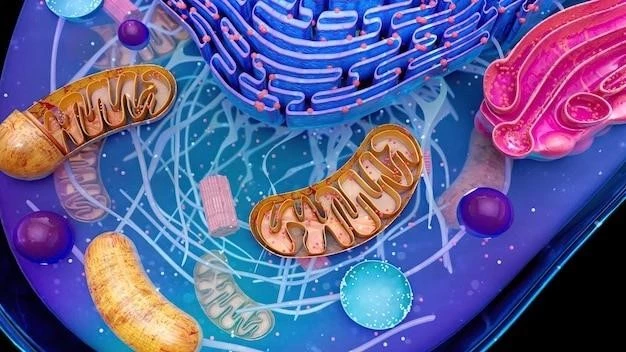Introduction to Hereditary Pancreatitis
Hereditary Pancreatitis⁚ Rare subtype with autosomal dominant inheritance causing recurrent pancreatitis episodes in childhood and potential genetic factors․
Hereditary Pancreatitis⁚ A rare subtype of chronic pancreatitis with autosomal dominant inheritance‚ presenting recurrent episodes of pancreatic inflammation․ It is linked to genetic mutations‚ with manifestations often appearing in childhood and carrying an increased risk of pancreatic cancer․
Overview of Hereditary Pancreatitis
Hereditary Pancreatitis⁚ A rare form of pancreatitis with genetic causes‚ leading to recurrent inflammation of the pancreas․ Symptoms often manifest in childhood and may escalate to chronic pancreatitis over time․
Identification of Susceptibility Genes
Studies have pinpointed the cationic trypsinogen gene (PRSS1) mutation as a significant factor in the development of hereditary pancreatitis․ This gene aberration plays a crucial role in the pathogenesis of the condition‚ highlighting the genetic underpinnings of hereditary pancreatitis and guiding diagnostic and therapeutic approaches․
Role of PRSS1 Gene Mutation
The mutation in the cationic trypsinogen gene (PRSS1) is a key genetic factor in hereditary pancreatitis․ This mutation is linked to recurrent pancreatitis episodes‚ illustrating the significant role of PRSS1 in the development and progression of this condition․

Clinical Presentation and Symptoms
Hereditary Pancreatitis⁚ Typically manifests with recurrent episodes of pancreatitis starting in childhood‚ leading to chronic pancreatitis with potential complications․
Signs of Hereditary Pancreatitis
Hereditary pancreatitis may present with symptoms such as recurrent pancreatitis episodes‚ stomach pain‚ nausea‚ vomiting‚ and can progress to chronic pancreatitis with long-term complications‚ potentially affecting digestion and overall health․
Presentation in Childhood
Hereditary pancreatitis typically emerges in childhood with recurrent episodes of pancreatic inflammation․ Symptoms appear early‚ often lasting for days and may include stomach pain‚ nausea‚ and vomiting․ The condition’s progression to chronic pancreatitis can lead to long-term complications affecting digestion and overall health․
Diagnosis and Testing
Hereditary Pancreatitis⁚ Diagnosis involves genetic testing to identify specific gene mutations linking to recurrent episodes of pancreatic inflammation․
Genetic Testing for Hereditary Pancreatitis
Hereditary pancreatitis is diagnosed through genetic testing to identify specific gene mutations associated with recurrent episodes of pancreatic inflammation․ These tests play a crucial role in confirming the genetic basis of the condition and guiding personalized treatment and management strategies․
Importance of Genetic Counseling
Genetic counseling is vital in hereditary pancreatitis cases‚ helping individuals and families understand the genetic basis of the condition․ It aids in making informed decisions about testing‚ treatment‚ and possible implications for the individual and future generations․
Treatment and Management
Hereditary Pancreatitis⁚ Management includes addressing symptoms‚ preventing complications‚ and potentially utilizing genetic counseling for personalized care strategies․
Approaches to Managing Hereditary Pancreatitis
The management of hereditary pancreatitis involves a comprehensive approach aimed at controlling symptoms‚ preventing complications‚ and potentially utilizing genetic counseling to devise personalized care strategies tailored to individual genetic mutations associated with the condition․ These strategies focus on improving quality of life and reducing the impact of recurrent episodes of pancreatic inflammation․
Role of Next-Generation Sequencing
Next-generation sequencing plays a pivotal role in diagnosing hereditary pancreatitis by analyzing multiple genes simultaneously‚ aiding in identifying specific mutations linked to the condition․ This advanced technology enhances the accuracy and efficiency of genetic testing‚ allowing for a more comprehensive understanding of the genetic basis of hereditary pancreatitis․
Complications and Risks
Hereditary Pancreatitis⁚ Linked to an increased risk of pancreatic cancer and recurrent episodes of pancreatitis‚ leading to chronic inflammation and potential long-term complications․
Association with Pancreatic Cancer
Individuals with hereditary pancreatitis have an increased risk of developing pancreatic cancer due to the recurrent inflammation and damage to the pancreas over time․ Regular monitoring and early detection are essential for managing this heightened risk and implementing timely interventions․
Increased Risk of Recurrent Pancreatitis
Individuals with hereditary pancreatitis face an elevated risk of recurrent episodes of pancreatic inflammation over time due to the underlying genetic factors․ The recurrent nature of pancreatitis episodes can lead to chronic inflammation of the pancreas‚ posing long-term risks and complications that require careful management and monitoring to mitigate potential adverse outcomes․

Research and Recent Findings
Hereditary Pancreatitis⁚ Recognized as a condition with an autosomal dominant inheritance pattern‚ leading to recurrent episodes of pancreatic inflammation‚ understanding its genetic etiology reshapes treatment approaches and provides insights into its clinical management․
Advancements in Understanding Hereditary Pancreatitis
Research has made significant strides in unraveling the complexities of hereditary pancreatitis‚ shedding light on its genetic underpinnings and inheritance patterns․ These advancements enhance diagnostic accuracy‚ genetic counseling‚ and personalized treatment approaches‚ shaping the landscape of managing this condition effectively․
Current Studies on Treatment Options
Ongoing research focuses on exploring innovative treatment options for hereditary pancreatitis‚ aiming to reduce the frequency and severity of recurrent inflammation episodes․ Studies delve into personalized therapeutic approaches based on genetic insights to enhance patient outcomes and quality of life․
